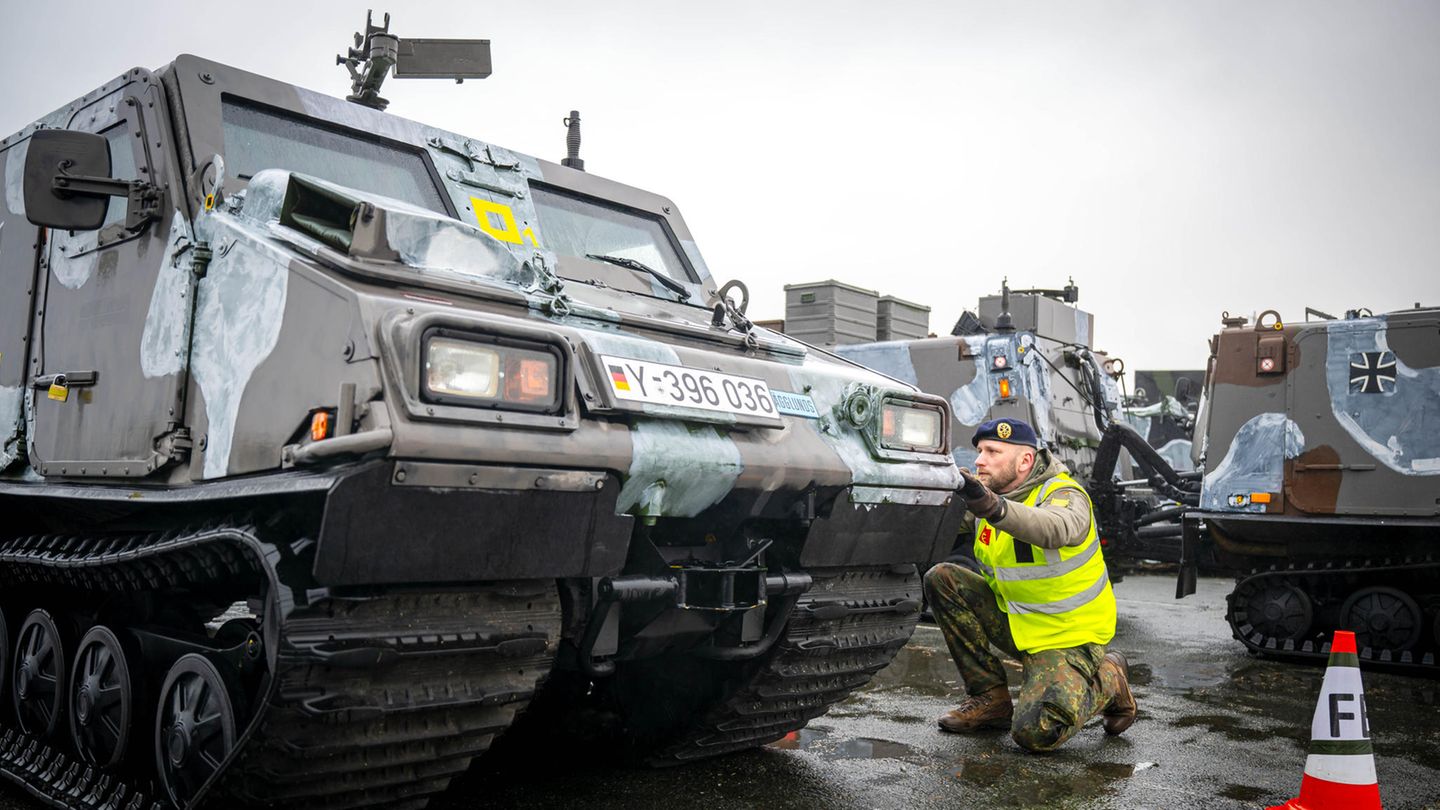Opinion
More and more countries around the world are preparing for higher military spending. In order to bear the costs of war, economies must change.
This article is adapted from the business magazine Capital and is available here for ten days. Afterwards it will only be available to read at again. Capital belongs like that star to RTL Germany.
The beautiful word peace dividend appeared in the early 1990s after the collapse of the Soviet Union, the peaceful revolutions in Eastern Europe and German reunification. Spending on armaments and the military fell year after year, the end of the confrontation between the two large blocs ensured a closer integration of the economies with high comparative advantages like from the economics textbook, and the states were able to relieve their citizens through lower taxes.
Now this development is completely reversed. Since the Russian attack on Ukraine in February 2022, the increasingly loud saber rattling of the Chinese autocrat Xi Jinping, the attacks by the Iranians and their vassals in the Middle East and the dangerous provocations by the North Koreans on their doorstep, more and more countries around the world are taking a stand a new location. Nowhere does the word peace dividend appear; everyone talks about the costs of war. Globalization is declining, a new Eastern bloc is forming under the leadership of the People’s Republic of China, and military spending is increasing in almost all nations. And this development is likely to continue for ten or more years.
Economies cannot simply cope with the new burdens, but must change radically in order to be able to bear the high unproductive costs. Roughly simplified, one can say: government spending in all non-military areas must decrease rather than continue to increase. Companies need more flexibility. Relieving the burden of bureaucratic regulations and strengthening their competitiveness should be back on the political agenda.
No more going back
So far, most states in the European Union have failed to recognize that we are dealing with a structural and not a temporary challenge. Even after the end of Russia’s war against Ukraine, there will be no return to the status quo as long as the threat remains. The debate about the Bundeswehr’s budget is typical of the ongoing denial of reality: We outsource the efforts required in the short term to a special fund, but do not address the efforts required in the long term. There will therefore be a large gap in the Bundeswehr budget in just two years.
Worse still: the politicians in charge are not giving the citizens pure wine. There is no debate about the structural burdens they will have to shoulder in the coming years. Because it’s not just about the direct costs of defense, but about the much higher accompanying costs of de-globalization. The necessary reduction of the high risks in business with China alone will have an impact of many billions of euros on the balance sheets of corporations and the overall accounts of the national economy over the next few years.
Bornholmertårnet
Relic of the Cold War: People used to eavesdrop on the Eastern Bloc here
We still act as if we can manage everything casually without changing the usual course of things. This ostrich mentality is somewhat reminiscent of the time immediately after reunification, when the integration of the ailing GDR economy was sold by politicians as a direct and quick route to economic paradise. We know the consequences.
Source: Stern




